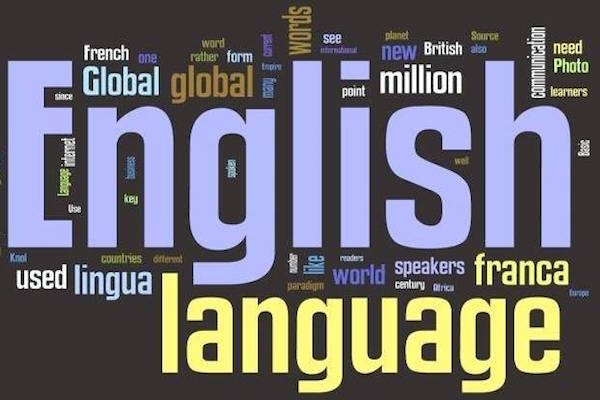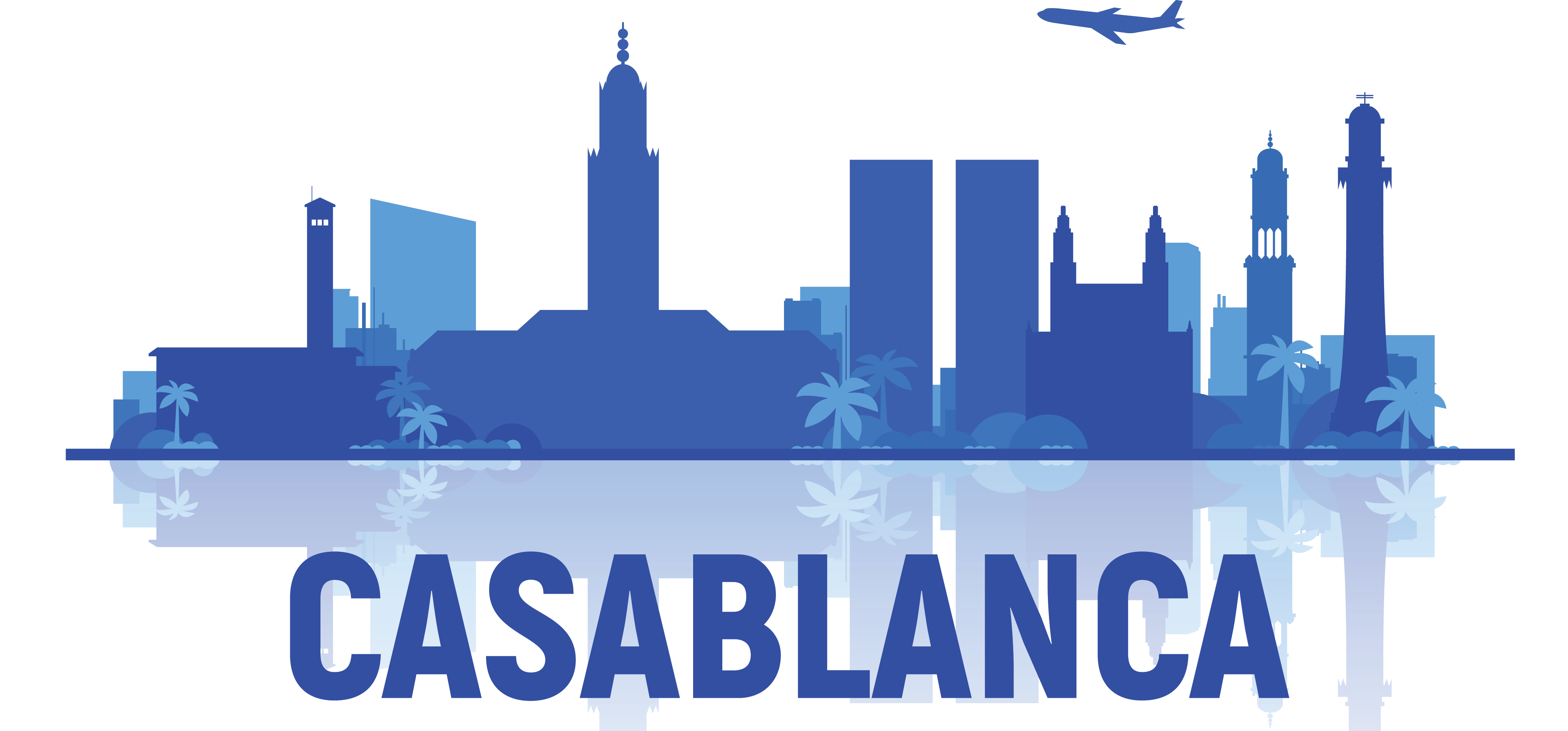 POSTES INTERNATIONALES DU MAROC
POSTES INTERNATIONALES DU MAROC
Why English as a Second Language in Morocco is a Developmental Necessity
Like most of the English Department students in Morocco, I have been unable to figure out the reason why Morocco, a country that is heads and shoulders above most African countries in economic potential, is still using French as the language of business, education, and technology more than 60 years after it gained independence from France, especially when it clearly fails to accommodate for the needs of the 21st century Morocco. I first asked this question exactly 12 years ago during a class discussion at the university and neither the professor nor anyone else ever since has made an attempt at answering the question without bringing up Morocco’s inability to take such action, which almost always changes into a discussion about Morocco’s sovereignty, or its lack thereof, when France’s interests are on the line.
The current president of France, Emmanuel Macron, has made it clear that promoting the French language and francophonie in Africa is a diplomatic priority, and launched a massive campaign in this direction which quickly ranked his country 1st worldwide in 2019 Soft Power Index. In fact, many argue that France promotes its language in ways that are harder than normal soft power. Joseph Nye, who coined the term soft power in 1990, defines it as “the ability to get what you want (as a state) through attraction rather than coercion or payments”, and by looking at the the rising anti-French sentiment in Africa, especially its western side, it’s obvious that France uses coercion to maintain its former colonies in control, and Morocco is no exception. Like my podcast co-host, Gari Sullivan, wondered as we were discussing this very point, “how soft is French soft power?”
One of the recurrent objections I’ve received is “why not try to promote Arabic or Darija, your native language!?” The short answer I give is that since WWII English has established itself as the lingua franca of international business, diplomacy, education and research, technology and so forth and by not using it for these purposes Morocco misses on the opportunity to interact, exchange, and trade with other countries. In this pragmatic way of dealing with the problem, Arabic or even French are not completely dismissed as futile languages but are only enhanced by English. Tony Reilly, the Director of the British Council in Morocco, whom I interviewed about this specific point, said about the future of the linguistic landscape in Morocco where English enjoys more prominence that “it’s not zero sum game.”
The Long Answer: English is a Developmental Necessity
The traditional approach to understanding and measuring countries’ development equated it with economic progress. While the latter is essential in determining the level of a country’s development, current approaches stress the importance of taking into account the social component in addition to the GDP per capita. In this wider perspective, argues the Nobel Prize winner Martya Sen, a specific focus must be given to entitlements, which are the sum of political and social freedoms that the members of the societies are granted, and the capabilities resulting from them. Measuring the effect of adopting English as a second language on development should, thereby, highlight its impact on countries’ economic progress as well as the subsequent social privileges.
English and the Economy
Numerous studies have investigated the correlation between English proficiency and economic growth. A 2012 paper by Chew Ging Lee from Nottingham University Business School finds that “countries with higher levels of English proficiency among the fraction of its population are likely to grow faster.” The researcher goes on to explain that this is due to the fact that “individuals are likely to be touched with new knowledge if they have learned English.” Thus, the paper makes the case that larger the size of the population that speaks English, the greater the rate of absorption of knowledge for the economy.
Other papers have provided ample evidence that a common language lowers international trade transaction costs as translation and other services are dispensed with, while others consider English abilities a condition for participating in the global economy. While focusing commercial efforts with the countries that speak a shared language instead might seem like a possible way out, other research shows that nothing will particularly replace strengthening the position of English within the linguistic landscape of a country like Morocco. In this regard Hejazi and Ma’s 2011 research reveals that “two countries that both speak English have more bilateral trade than two countries who have a similar shared language that is not English.” In the same vein, countries with good command of English among its population tend to focus on export-based industries as they find it easier to tap into profitable export markets.
For a country like Morocco, which has been striving to modernize its economy by moving from agriculture to manufacturing and then to service industries, shifting to English is especially impactful. The reason for this is that the services sector is predicated on interpersonal skills, where language is indispensable. Cognizant of this fact, the United Nations World Tourism Organization (UNWTO) includes English language training within its ST-EP (sustainable tourism – eliminating poverty) program to promote tourism (a service sector) in marginalized areas and countries. The relocation of call centers, back office and IT services (BPO and ITES) from one country to the other is yet another example of the significance of the English language for certain industries. India’s revenue from this specific sector exceeded $ 28 billion in 2018.
English and Employability
At the micro-level, the level of English proficiency has a direct impact on both earning gains and employability. In a study about Switzerland, English language skills were found to significantly influence earning gains in the labor market, and that the wage difference between those with high english proficiency and those without it exceeds 30 percent for top level competence and less for lower competence level. Another research by Wall Street English shows that 50% of English speakers reported a 25% earnings boost as a result of learning English.
These figures have been reproduced in a number of countries around the world and attest to the significance of English in employability. The massive increase in multinationals in Morocco in the past 10 years, operating mainly in the automotive and the aeronautics industries, has increased the demand for English. However, in the absence of a government plan to promote English in Morocco, these individual efforts to learn English remain insufficient.
English and entitlements
As previously stated, the economic component is only one aspect of development beside the social/political factor which consists of a number of freedoms that the population of a given country enjoys. In this regard, I will focus on international student mobility and international migrant working, drawing on a paper by the British Council.
The number of students enrolled in university-level education has exceeded 6 million individuals worldwide. Interestingly, half of these international students go to the USA, UK, Australia and Canada, which are all English-speaking countries. Further, the majority of international students that opt for countries like France, Germany, China and Japan, which together attract around 30% of them, study partially or entirely in English. The reason why students prefer these countries is twofold: They wish to enroll in them due to the perceived quality of their education as well as to studying in an environment where learning English is a necessary by-product.
The impact of international students on their own countries touch on a variety of areas such as education, economy, technology and so forth, which justifies the colossal budgets and government programs in some developing countries like Qatar, Saudi Arabia, Brazil, Singapore and others to finance their nationals’ tuitions in developed countries. One of the areas I have operated in the past 10 years is studying abroad and my experience is that one of the main hurdles preventing Moroccan students from being admitted into the universities is not being able to score high enough due to their mediocre level of English. Therefore, encouraging Moroccans to study English from an early age will increase their chances of being admitted in the countries and the educational institutions of their choice, which is a necessary condition for development.
The same thing can be said about people’s freedom to migrate from a country to the other. The United Nations Development Programme specifies that development and migration are strongly tied together. It reveals that “the median emigration rate in a country with low human development is below 4 per cent, compared to more than 8 per cent from countries with high levels of human development.” So long as most of the countries that receive migrants are English-speaking (the US, Canada, Australia, New Zealand), and that an intermediate level of English proficiency is indispensable in admitting migrants, strengthening the position of English in Morocco will allow more Moroccans to migrate to developing countries.






